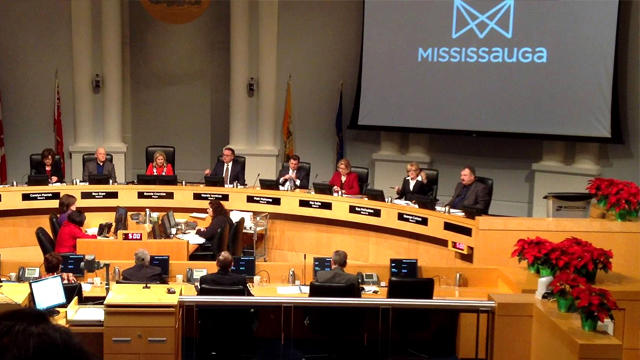Would You Like to Decide How Money is Spent in Mississauga?
Published September 20, 2016 at 3:07 pm

Welcome to the Part 2 of 3 of my examination into Mississauga Mayor Bonnie Crombie’s panel appearance with Toronto Mayor John Tory and Ajax Mayor Steve Parish last year at Ryerson University’s City Building Institute. Here’s the question of focus here: would you, as an ordinary citizen, want to decide how your tax dollars are spent in Mississauga?
Feel free to watch the entire segment, but focus on when Mayor Crombie starts talking at around 1:18:00 when the attending mayors were asked about reforming political culture. This article will focus on participatory budgeting in Mississauga.
What is participatory budgeting? It’s a unique concept that has been tried out in jurisdictions around the world. The concept is ordinary people deciding how to allocate part of a public budget. Participatory budgeting allows citizens to identify, discuss, and prioritize public spending projects, and gives them the power to make real decisions about how money is spent. When PB is taken seriously and is based on mutual trust, local governments and citizens can benefit equally. PB has the potential to provide social inclusion and social equity in decision making regarding the allocation of resources in communities with low socioeconomic status.
This video I discovered pretty much summarizes the concept beautifully; although the jurisdiction is in New York City, you can take the issues people raised in the video and apply it to almost any jurisdiction:
So what did our mayor have to say about participatory budgeting? Bonnie Crombie identified it as one of the proposals she wasn’t sure about, mainly because her assumption is that Mississauga is already doing its own version of participatory budgeting. Mayor Crombie said, “we do a lot of town halls, either online or we welcome people into the council chamber, we welcome their input. We welcome all the resident associations and seek their input on the budget, and we have a budget allocator that we borrowed from Halifax.”
Hopefully it’s not my own narrow perceptions, but the version of participatory budgeting that our mayor outlines seems radically different from the examples given in the video I posted. The Brazilian city of Porto Alegre was the first jurisdiction to put participatory budgeting into practice, as cited in this report, and so far it has worked spectacularly in terms of engaging citizens and making them feel invested in their community. Certain areas in New York City and Chicago have also specifically allocated a section of the city budget for participatory budgeting, giving their citizens the power to allocate how that money is spent.
To be fair, Mississauga does take public opinion into account. According to Ann Wong, Manager, Business Planning & Reporting with the city, information from the budget allocator, public meetings and public questions will get drafted in a report to be sent to Budget Committee on November 28. The public input in all deliberations spans from that November date to December 12, and from what the staff person tells me, the committee took all the public input very seriously, as the consolidated report was consulted in all of their deliberations and they referenced it quite often.
But there is a large distinction between participatory budgeting practiced by the city of Mississauga and participatory budgeting as it is more commonly known around several jurisdictions across the globe. As this clip about participatory budgeting in Chicago’s 49th ward demonstrates, each local councillor gets infrastructure money allocated to their area every year, and a local representative decided to use a participatory budgeting process to allow his residents to decide how to use that money. It’s a very grassroots method; and the other cities and towns around the world that were cited in the examples I provided also contained a strong grassroots participatory framework.
But from what was described to me by Mississauga staff, using an online budget allocator allows the city to specifically frame and narrow the questions being asked to people about what they want. They know that when you give people an online survey to express their opinions, the majority of time people will select, on average, the middle answer (so the data that is gathered will not show much rocking of the boat).
And while there are public meetings held by Mississauga on the budget, it draws out the same people who always scrutinize the budget and bring up the same rehashed issues; generally keeping the debate to a narrow set of opinions and failing to attract a diverse enough group of residents to offer new and different viewpoints. The city also asks for input on the whole budget from people, so there’s no allocation of specific dollars for citizens’ participatory budgeting for projects. Finally, there isn’t really any guarantee that the council will be bound by what people recommend. City councillors may be elected to represent, but they also have the discretion to exercise their own views and, dare I say, ignore people’s views completely.
So do you like the way Mississauga is handling its public engagement methods with the city budget? Or do you think it’s time Mississauga citizens be allowed to make more important decisions in terms of how their money is spent?
Stay tuned for Part 3 on this series, next topic will be whether Mississauga needs community councils.
FWeollow me on Twitter at @thekantastic
insauga's Editorial Standards and Policies advertising





